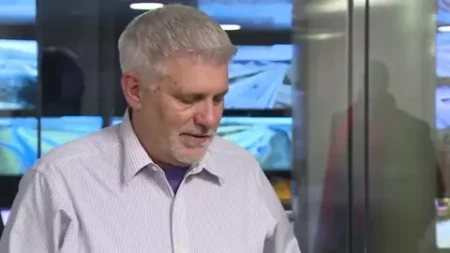France is in discussions with Mali after a French citizen was arrested in Bamako over allegations of working with foreign intelligence to destabilize the country. France’s foreign ministry described the claims as “unjustified” and said efforts are underway to secure the immediate release of the individual.
The French national, employed at the French embassy, was detained on Thursday. Malian authorities accused him of collaborating with foreign intelligence services to undermine the government. Officials also claimed that “foreign states” are attempting to destabilize Mali.
The West African nation’s ruling junta, which seized power after two coups in 2020 and 2021, reported that several military officers had also been detained for allegedly plotting to overthrow the government.
France stressed that the detained embassy employee is protected under the Vienna Convention on Consular Relations, which obliges Mali to grant him release. The ministry confirmed ongoing talks aimed at resolving any misunderstandings quickly.
Mali has faced ongoing security challenges since 2012. The country struggles with armed groups linked to Al-Qaeda and Islamic State, as well as local criminal networks. These conflicts have caused instability and hindered economic development, leaving Mali dependent on international support for security and humanitarian aid.
The current government, led by President Assimi Goita, has shifted away from traditional Western allies, including France, citing national sovereignty concerns. The junta has instead sought political and military ties with Russia, raising concerns among Western nations about Mali’s strategic alignment.
Relations between France and Mali have been tense since the military takeover, with France previously criticizing the junta for human rights abuses and political repression. The arrest of the French national adds to existing diplomatic friction, signaling the fragility of bilateral cooperation.
International observers have expressed concern that targeting embassy staff could further isolate Mali from global partners. Experts warn that escalating tensions may impact security operations against jihadist groups in the Sahel region, potentially allowing extremist networks to expand.
Despite the dispute, France emphasizes dialogue and diplomatic solutions. Officials have underlined that the talks with Mali aim to clarify the situation and avoid further deterioration in relations.
The case also underscores Mali’s internal challenges. The junta maintains strict control over the military and government institutions, citing threats from both domestic and foreign actors. Analysts note that accusations against foreign nationals are often politically motivated, reflecting a broader strategy to consolidate power internally.
French officials continue to monitor the situation closely, maintaining that the embassy employee’s detention is unjustified. They are pressing for a swift resolution, highlighting the importance of consular protections and international law.
The Bamako government has not provided a detailed explanation for the arrest, but Mali’s shift toward Russia indicates a deeper geopolitical realignment. This trend could complicate France’s influence in West Africa and challenge ongoing security cooperation efforts in the region.
With the talks ongoing, the international community watches closely, emphasizing the need for transparency and adherence to diplomatic norms. France’s insistence on immediate release reflects a commitment to protecting its citizens while maintaining international legal standards.







